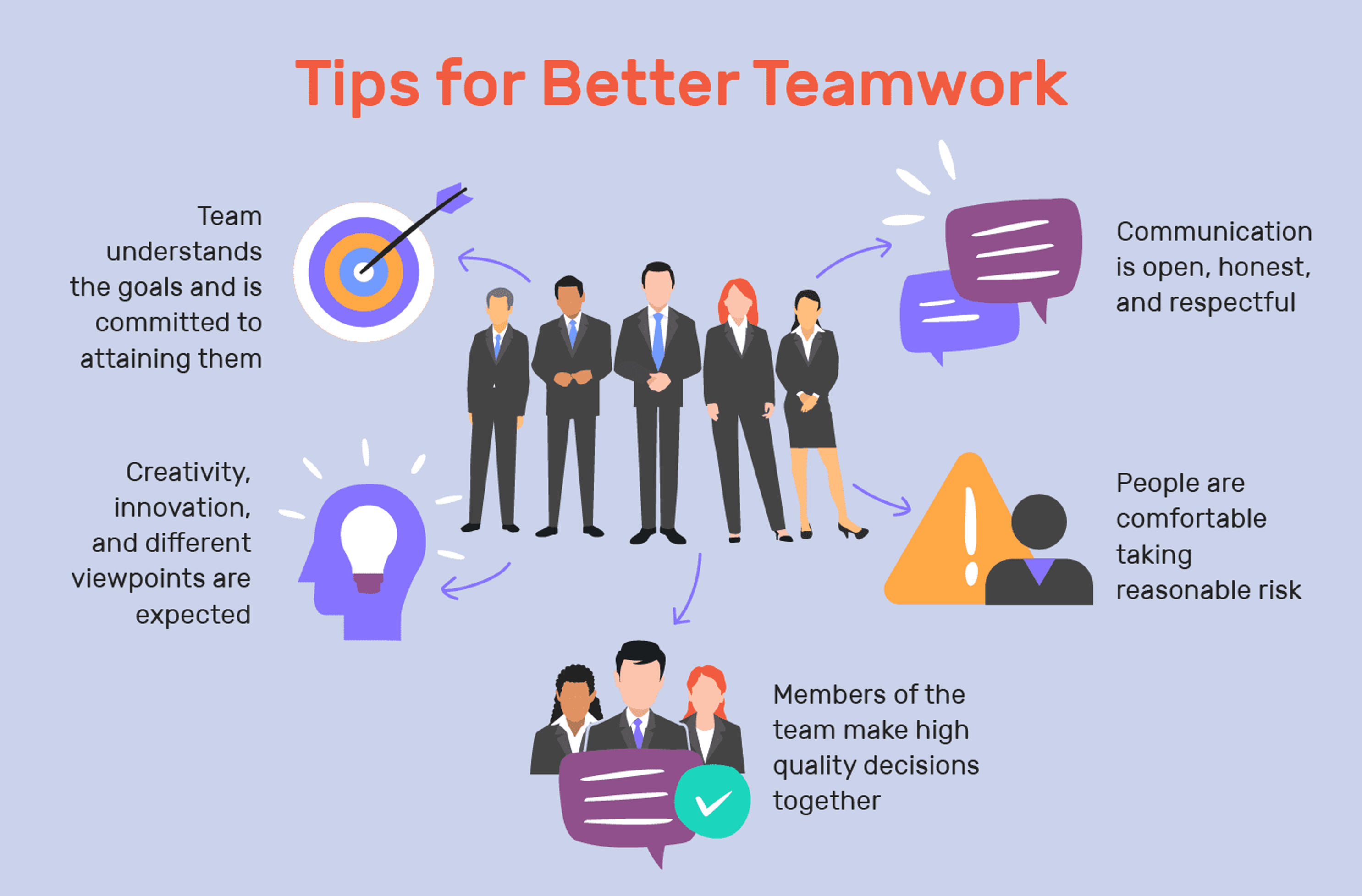.png)
Strategies for Establishing Teamwork

Establishing clear goals and being committed: Ensure that every team member understands the team's objectives and their specific responsibilities to achieve them. Encourage commitment to the goals and hold each team member accountable for their role.
Foster open communication and create trust: Create an environment where team members can communicate openly and honestly with each other and build trust through mutual respect and reliability.
Encourage creativity and promote collaboration: Provide opportunities for team members to work together on projects and tasks and encourage creativity and innovation to achieve better results.
Provide opportunity and make them feel comfortable taking risks: Encourage team members to develop their skills and knowledge by providing training, mentoring, and coaching. Create an environment that allows team members to take risks and learn from failures.
Promote quality decisions made and celebrate success: Encourage the team to make quality decisions by involving every member in the decision-making process. Celebrate team successes and recognize individual contributions to build a sense of pride and accomplishment.
By implementing these strategies, teams can establish a culture of collaboration, communication, and trust that will enable them to work effectively together towards common goals.
Principles Towards Teamwork:

As far as personality is considered an introvert, working in a team environment can be challenging, especially if they prefer to work alone or in quiet settings. However, developing your personality towards teamwork is possible and can be rewarding.
Here are some tips to help you:
Acknowledge your strengths: As an introvert, you likely have unique strengths that can be valuable in a team setting. You may be a good listener, a critical thinker, or an excellent problem solver. Recognizing your strengths can help you feel more confident and comfortable contributing to a team.
Communicate effectively: Communication is a key component of teamwork, so it's essential to develop effective communication skills. Practice active listening, express your thoughts and ideas clearly and concisely, and be receptive to feedback.
Build relationships: Building relationships with your teammates is critical to establishing trust and collaboration. You don't have to be outgoing or talkative to build relationships; try to find common interests and be genuinely interested in your colleagues.
Participate in team activities: Participating in team activities, such as team-building exercises, brainstorming sessions, or social events, can help you feel more comfortable in a team setting. These activities provide opportunities to get to know your teammates and build relationships.
Embrace your role: Each team member has a unique role to play in achieving the team's objectives. Embrace your role and focus on contributing your strengths to the team's success.
Remember that while developing your personality towards teamwork takes time and effort, be patient with yourself and focus on making small, incremental progress. By leveraging your strengths, building relationships, and communicating effectively, you can become a valuable team member and enjoy the benefits of working in a team.